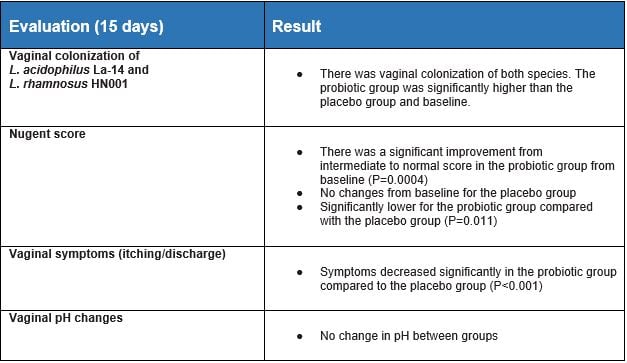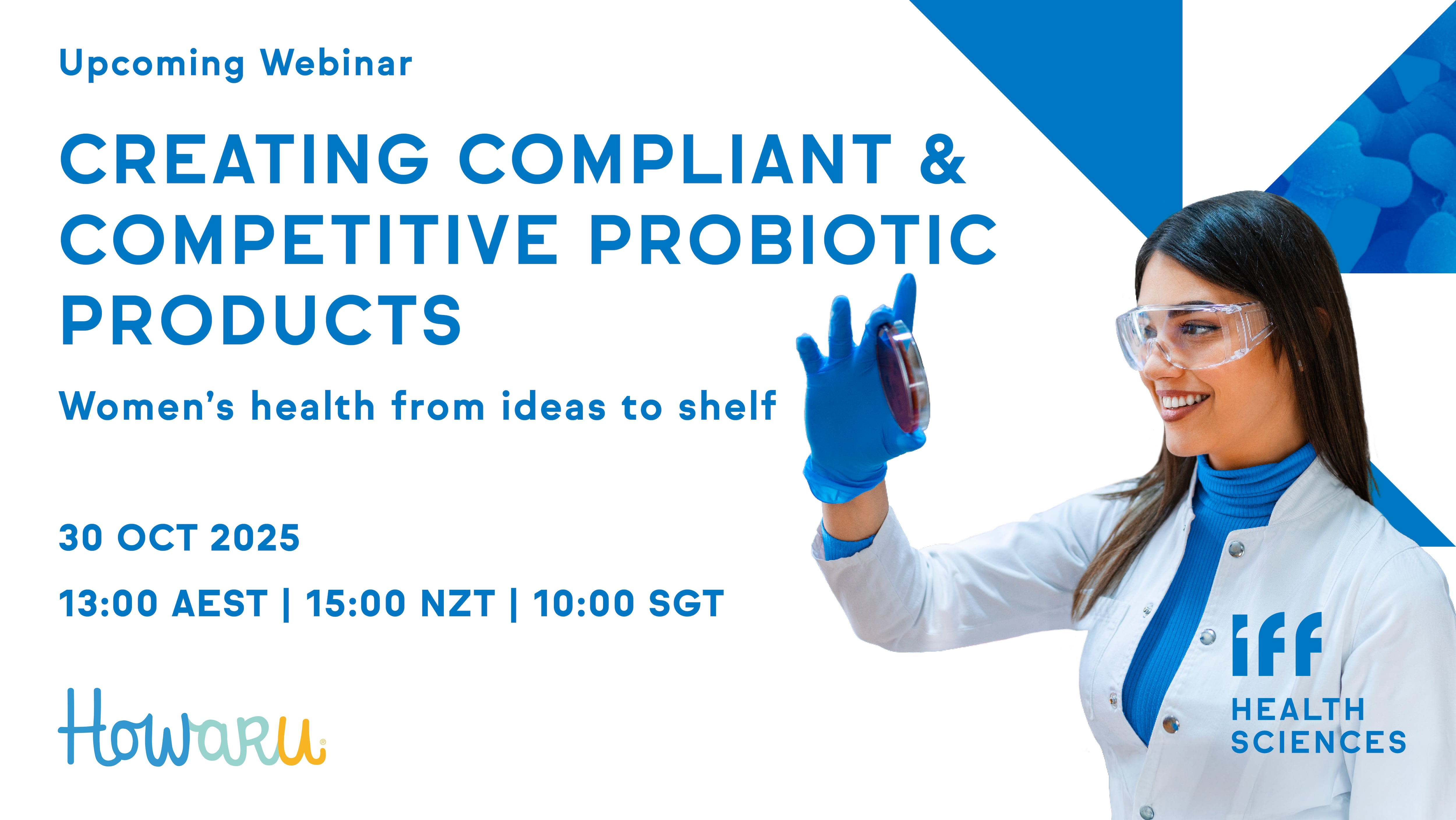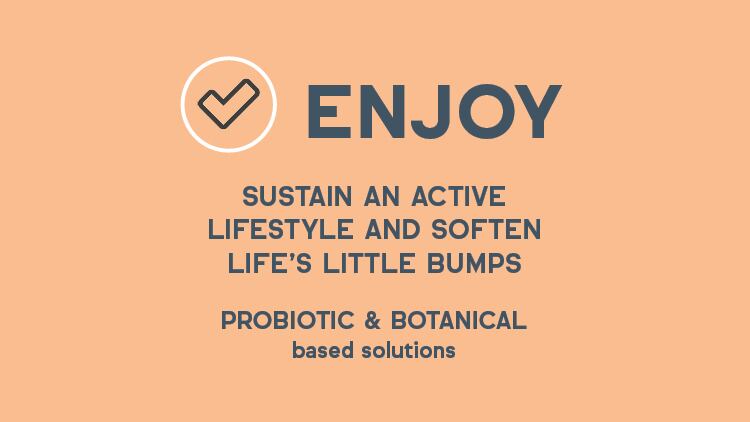It is well-known that probiotics go hand-in-hand with digestive and immune health, in fact, the vast majority of products on the market today support just that. What is being more and more understood is how probiotics affect other parts of the body as well, especially in women.
Dietary supplements formulated specifically for women are in high demand and sales have grown continually year over year. There’s good reason for that; women experience physical and emotional changes that may not affect their male counterparts. From vaginal health, to perinatal support including emotional health; digestive and immune support are just the tip of the iceberg of what probiotics can offer.
Balanced vaginal microbiota
There are two commonly-used probiotic Genera in the pharmaceutical, dietary supplement and food industries; Lactobacillus and Bifidobacterium. Lactobacillus spp. are especially common in women’s probiotic supplements because a healthy vagina is colonized predominately by a number of these species. Clinical research has shown that any reduction in the proportion of certain Lactobacillus in the vaginal microbiota can be associated with dysbiosis, an imbalance of good and bad bacteria, which may increase the risk of disease. Two of the most common vaginal complaints associated with dysbiosis are bacterial vaginosis (BV) and vulvovaginal candidiasis (VVC) — commonly known as a yeast infection. Therefore, management with probiotic supplementation has been the subject of numerous clinical trials. One such clinical trial looked at women with intermediate Nugent scores, indicating a perturbed vaginal microbiota, and with symptoms of vaginosis. These women consumed either a mixture of Lactobacillus acidophilus La-14 and Lactobacillus rhamnosus HN001 in combination with bovine lactoferrin RCX or a placebo for 15 days. Lactobacillus species were then analyzed from vaginal swabs at baseline and at the end of the 15-day probiotic/placebo treatment.
The study found that both species were detected in significantly higher levels from the vaginal samples at the end of intervention when compared with the baseline and placebo groups. In addition, the Nugent score of women in the probiotic group significantly improved from intermediate at baseline to normal (P=0.0004) after 15 days of supplementation. In contrast, the Nugent score in the placebo group remained unchanged. Self-assessed vaginal symptoms (itching, discharge) decreased significantly at the end of 15 day treatment compared with placebo (P<0.001) as well.
Table 1: Significant Results After 15 Days of Supplementation

Additional clinical trials have also shown that ingesting a probiotic supplement containing these same strains had a positive effect regarding the symptoms of recurrent BV and VVC in women undergoing metronidazole treatment. This supports the idea that probiotic supplementation represents a safe and effective adjunct for the restoration of healthy vaginal microbiota and reducing vaginal symptoms associated with an imbalance in vaginal flora.
Supporting happiness
There is a lot of developing research focused on delving deeper into understanding the impact our gut bacteria have on our brain. While some of this remains theory yet to be proven, the evidence supporting that our microbial makeup can affect our mood has been shown in a significant study of over 400 pregnant women called, ‘The Probiotics in Pregnancy’ study. In this two-center, randomized, double-blind, placebo-controlled trial, the probiotic L. rhamnosus HN001 was taken daily by pregnant women from 14 to 16 weeks of gestation to six months post-term, if breastfeeding. Mothers were then invited afterwards to fill out a questionnaire that considered their psychological well-being at 1-2 months after birth. Mothers in the HN001 group reported significantly lower depression and anxiety scores than those in the placebo group.
Probiotic supplementation is a tool that can be used by a woman in conjunction with prescription drugs or professional help to help support mood health during her transition into motherhood.
Full body wellness
Vaginal health and mood support are not the only health concerns women have outside of supporting a healthy digestive and immune system, but they do represent two key areas that may benefit from probiotic supplementation. As we learn more and more about the human microbiome and the role our gut bacteria plays, the more we can learn how probiotics can positively benefit additional aspects of our lives. It is an exciting time for dietary supplements and the consumers who are destined to benefit from the science behind them.
References
[1] Russo R et al., (2018) Arch Gynecol Obstet 298 (1):138-145
[2] R. Russo, E. Karadja, and F. De Seta Beneficial Microbes 2019 10:1, 19-26
[3] Russo et al. Mycoses, 2019 10.1111/myc.12883
[4] Barthow C et al., (2016) BMC Pregnancy Childbirth 16,133
[5] Slykerman RF et al., (2017) Ebio Medicine








